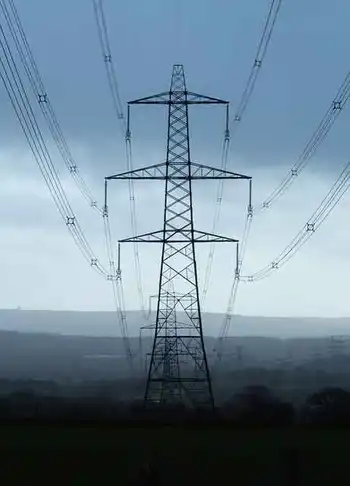Retrofitting cars into plug-in hybrids
The cluttered Advanced Vehicle Research Center garage, tucked in an office park, can accommodate two Toyota Priuses. Lately, the bay stays full. Demand keeps the cars rolling in for a makeover some say will become standard as the car industry weans itself off gasoline. In less than four hours, the mechanics at the garage can outfit a Prius with a second battery pack. It emerges as a hybrid that can plug into a wall outlet to recharge like a cell phone.
The result: A car that breaks a once-unimaginable fuel efficiency barrier and delivers 100 miles per gallon. The spare battery costs less than 75 cents to charge and gives the plug-in Prius about a 35-mile range solely on electric power, making gasoline optional on short commutes. Retrofitting Priuses has become a full-time occupation for the Advanced Vehicle Research Center.
The News & Observer of Raleigh reported that even as gas prices have retreated from record highs, the cost of tanking up is changing lifestyles. Many people are driving less and ditching SUVs for smaller cars. Automakers are switching production to economy models and rushing to roll out hybrids. Research is accelerating on new technology such as long-range electric cars and hydrogen-powered vehicles.
The Advanced Vehicle Research Center is one of a handful of companies that converts the Prius or other hybrids into plug-in hybrids, doubling their gas mileage. The auto center sees demand mostly from corporate customers with fleets of cars, but recently converted its first car for a private consumer.
The center's small crew — founder and president Richard Dell, a former IBM project manager, plus two auto mechanics — can retrofit three Prius orders a day.
Toyota does not authorize or endorse these conversions, and has its own Prius plug-in in the works. But plug-in hybrids aren't expected to be available commercially until 2010 in this country. Enthusiasts aren't waiting, and with outfits such as Advanced Vehicle Research Center, as well as Charlotte Energy Solutions and custom installers in other states, they don't have to. Anyone who owns a Prius and can spare $10,400 can get a custom conversion.
By the end of the year, Advanced Vehicle Research Center expects to have at least 30 such plug-ins on the road, including 20 in this state.
Dell's garage is stacked with battery conversion kits, air compressors, generators and other shop equipment. On a recent afternoon, Dell, 62, sidestepped half-open cartons and scattered tools as he checked on the progress of two conversions. The technicians, glistening with sweat, had removed the spare tire from the trunk and hoisted a 170-pound battery pack into the tire well.
The conversion is relatively uncomplicated and performed with standard tools: wrenches, wire crimpers and power tools.
About 150 plug-in hybrids are on the nation's roads today, said James Poch, executive director of the Plug-In Hybrid Coalition of the Carolinas in Mount Pleasant, S.C.
Advanced Vehicle Research Center's customers include Progress Energy, Duke Energy and Advanced Energy, a Raleigh nonprofit research organization. The Advanced Transportation Energy Center, an electric vehicle research program at N.C. State University, has placed an order. The city of Raleigh has had one car converted.
All are assessing the potential of plug-in hybrids for their vehicle fleets and general use, and sending data on mileage, recharging and performance to the Idaho National Laboratory, a federal research institute that is studying plug-in hybrids.
For the power companies, charging electric cars presents a financial opportunity, but it also poses a challenge. Both Progress and Duke are working with N.C. State to develop recharging options that won't overload the state's energy capacity. In the future, if plug-in hybrids are widely adopted, the utilities could offer a special discount rate to encourage customers to plug in at night.
As a Prius conversion shop, Dell's company works with 23 Systems, a Massachusetts business that designs and produces lithium ion batteries. The Raleigh outfit is one of eight nationwide authorized to install the 23 batteries. Recently, 23 certified Dell's shop to do plug-in conversions for individuals. Last month, his crew converted its first privately owned Prius, for a customer in Florida.
"All my life I've wanted to do something for the environment," said Fran Sullivan-Fahs, who lives in Tallahassee. "I really like giving average folks hope that something can and is being done to help with the awful rise in their transportation costs and with the pollution problems that we have faced and will face."
Payback on her investment will require patience. When gasoline costs $4 a gallon, the $10,400 cost of a custom conversion by his company could take 140,000 miles to recover through fuel savings, Dell said. Mass market plug-in hybrids, such as the Chevrolet Volt that will be rolled out in 2010, are expected to be more economical. The Volt also will use the 23 lithium ion battery.
Mileage on a plug-in Prius varies widely and depends on driving habits. Raleigh's plug-in Prius, driven by police department employees, gets about 62 miles per gallon around town, said city fleet manager Travis Brown. Progress and Duke employees regularly achieve 100 mpg. Poch has hit 150 mpg on his converted Prius. Advanced Energy has topped 200 mpg in one test under optimal conditions.
On long highway trips, the plug-in Prius will get about 45 mpg, much like a standard Prius, said Ken Dulaney, director of Advanced Energy's industrial, commercial and transportation group.
"More than anything, the conversions have demonstrated to us this is viable technology," said Mike Rowand, Duke Energy's director of advanced customer technologies. "It's given us more confidence that it's not a matter of if plug-in vehicles will happen, but when."
Related News

UK breaks coal free energy record again but renewables still need more support
LONDON - Today is the fourth the UK has entered with not a watt of electricity generated by coal.
It’s the longest such streak since the 1880s and comes only days after the last modern era record of 55 hours was set.
That represents good news for those of us who have children and would rather like there to be a planet for them to live on when we’re gone.
Coal generated power is dirty power, and not just through the carbon that gets pumped into the atmosphere when it burns.
The fact that the UK is increasingly able to call upon cleaner alternatives…





